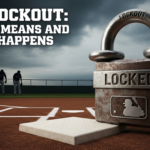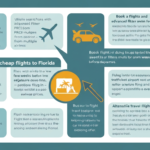YouTube, the world’s largest video-sharing platform, has transformed the way we consume content. With over two billion logged-in monthly users, it offers a vast array of videos ranging from educational tutorials to entertainment and vlogs. But how can you make the most of this platform?
Creating a YouTube Account
Step-by-Step Guide to Setting Up Your Account
Starting your journey on YouTube begins with creating an account. Visit YouTube’s website and click on the “Sign In” button. From there, you can use your Google account to sign in or create a new one if you don’t already have one. Follow the prompts, and in just a few minutes, you’ll have your very own YouTube account.
Customizing Your Profile
Once your account is set up, it’s time to make it yours. Customize your profile by adding a profile picture, a channel banner, and a compelling channel description. These elements are the first things viewers see and can help establish your brand.
Understanding YouTube’s Interface
Home Page Layout
YouTube’s homepage is designed to be user-friendly. It features a mix of recommended videos, trending content, and personalized suggestions based on your watch history. Familiarizing yourself with this layout will help you navigate the platform more efficiently.
Navigation Menu
The navigation menu on the left side of the screen provides quick access to your subscriptions, playlists, and watch history. Use it to stay organized and keep track of your favorite channels and videos.
Video Player Interface
The video player interface is straightforward. You have controls for play, pause, volume, and fullscreen, as well as options to adjust video quality and subtitles. Understanding these controls ensures a smoother viewing experience.
Uploading Videos
How to Upload a Video
Uploading videos is the core of YouTube. Click on the camera icon at the top right and select “Upload Video.” Drag and drop your video file or select it from your computer. Fill in the necessary details such as title, description, and tags, then hit “Publish.”
Best Practices for Video Uploads
To ensure your videos reach a wide audience, follow best practices like uploading high-quality content, using descriptive titles, and adding relevant tags. Consistency in your upload schedule also helps retain viewers.
Optimizing Video Content
Importance of Video Titles
Your video title is the first thing potential viewers see. Make it engaging and reflective of your content. Including keywords can significantly improve your video’s visibility in search results.
Crafting Compelling Descriptions
A well-written description provides context for your video and can include links, timestamps, and keywords. This not only helps with SEO but also provides valuable information to your viewers.
Using Tags Effectively
Tags are keywords related to your video. Use a mix of broad and specific tags to increase the chances of your video being discovered. Tools like TubeBuddy can help you find the best tags for your content.
Thumbnails and Their Impact
Designing Eye-Catching Thumbnails
Thumbnails are a visual hook for your videos. Use high-resolution images, vibrant colors, and clear text to create thumbnails that stand out. A well-designed thumbnail can significantly increase your click-through rate.
Tools for Creating Thumbnails
Tools like Canva and Adobe Spark offer easy-to-use templates for designing professional thumbnails. Experiment with different designs to see what resonates best with your audience.
Engaging with Your Audience
Responding to Comments
Engagement is key to building a loyal audience. Take the time to respond to comments on your videos. This shows viewers that you value their input and encourages further interaction.
Creating Community Posts
Community posts allow you to share updates, polls, and images with your subscribers. Use this feature to keep your audience engaged between video uploads and to gather feedback on your content.
Understanding YouTube Analytics
Key Metrics to Track
YouTube Analytics provides insights into your channel’s performance. Track metrics like watch time, audience retention, and click-through rate to understand what’s working and what needs improvement.
How to Use Analytics to Improve Your Channel
Use the data from YouTube Analytics to refine your content strategy. Identify which videos are performing well and analyze why. Adjust your future videos based on these insights to continually improve your channel’s performance.
Monetizing Your Channel
YouTube Partner Program
Once your channel meets the eligibility requirements, you can apply for the YouTube Partner Program. This allows you to earn money from ads displayed on your videos.
Other Monetization Options
Beyond ads, explore other monetization options like channel memberships, Super Chat, and merchandise shelf. Diversifying your income streams can help you build a sustainable YouTube career.
SEO Strategies for YouTube
Keyword Research for YouTube
SEO is crucial for your YouTube success. Use tools like Google Trends and Keyword Planner to find popular keywords in your niche. Incorporate these keywords into your video titles, descriptions, and tags.
Utilizing YouTube SEO Tools
Tools like VidIQ and TubeBuddy offer advanced features to optimize your videos. They provide insights into keyword opportunities, competition analysis, and video performance metrics.
Collaborations and Partnerships
Benefits of Collaborating with Other Creators
Collaborations can introduce your channel to new audiences. Partner with creators who share a similar audience but offer complementary content. This can help both channels grow.
Finding Partners for Collaboration
Use social media and YouTube communities to connect with potential collaborators. Be clear about your goals and how the collaboration can be mutually beneficial.
YouTube Trends and Challenges
Keeping Up with Trends
Staying current with trends helps keep your content relevant. Follow industry news, watch trending videos, and adapt your content strategy to reflect current interests.
Overcoming Common Challenges
Every YouTuber faces challenges like content burnout, negative comments, and algorithm changes. Stay resilient, seek support from fellow creators, and continue to innovate and improve your content.
Legal and Ethical Considerations
Copyright Issues
Ensure you have the rights to any music, images, or clips you use in your videos. YouTube’s Content ID system can flag and demonetize videos that use copyrighted content without permission.
Community Guidelines
Adhere to YouTube’s community guidelines to avoid strikes on your channel. Familiarize yourself with these rules to ensure your content remains in good standing.
Promoting Your YouTube Channel
Using Social Media for Promotion
Leverage platforms like Instagram, Twitter, and Facebook to promote your videos. Share snippets, behind-the-scenes content, and engage with your followers to drive traffic to your YouTube channel.
Offline Promotion Strategies
Don’t underestimate the power of offline promotion. Network at events, collaborate with local businesses, and use word of mouth to grow your channel’s audience.
Conclusion
YouTube offers incredible opportunities for creators to share their passions and build an audience. By understanding and optimizing each aspect of your channel—from video creation to promotion—you can maximize your success on the platform. So, get started today, and let your creativity shine!
FAQs
How often should I upload videos?
Consistency is key. Aim to upload at least once a week, but find a schedule that you can maintain over the long term.
What equipment do I need to start a YouTube channel?
You don’t need expensive equipment to start. A good camera (even a smartphone), a microphone, and basic lighting can go a long way.
How can I grow my subscriber base quickly?
Focus on creating high-quality content, engaging with your audience, and promoting your videos on social media. Collaborations and shoutouts can also help boost your subscriber count.
Are there any tools to help with YouTube SEO?
Yes, tools like VidIQ and TubeBuddy offer features to help optimize your videos for better search rankings.
What should I do if my video gets flagged?
Review the reason for the flag, make necessary edits, and appeal the decision if you believe it was a mistake. Always ensure your content complies with YouTube’s guidelines.




